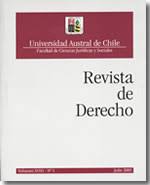Protection of motherhood: a history of tensions between the rights of children and the rights of the worker women
Main Article Content
Abstract
The standards of protection of motherhood have been a vehicle for safeguarding childhood, family and society as a whole (the common good), but hardly to protect women as citizens. Urging by these rules has been resisted throughout the last century with different arguments. For instance, that protecting women would have a detrimental impact on their employability, referring to factors such as rising wage cost; there are limited managerial human resources available in the companies; or that paid work for women is a lesser evil, since they have abandoned the duty of take care of the children. To this discourse is added the biomedical arguments that seeks to protect children through breastfeeding and health care. Only in recent years, the discourse of gender equity has been embraced.

